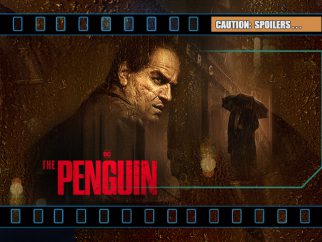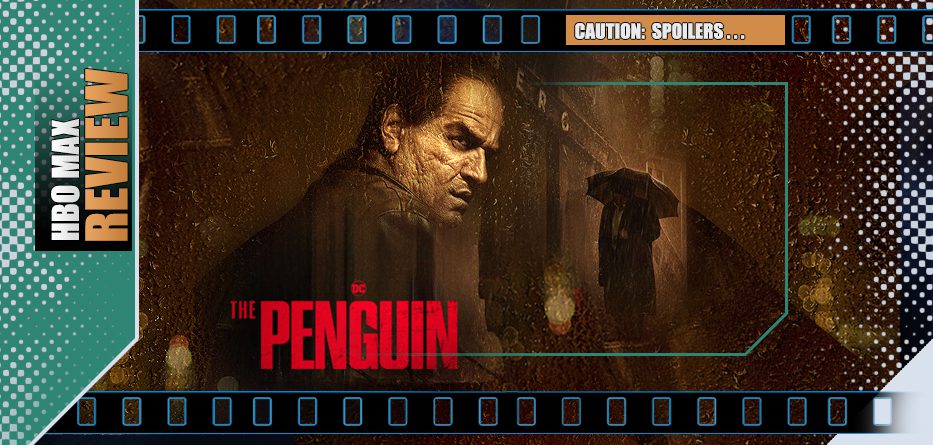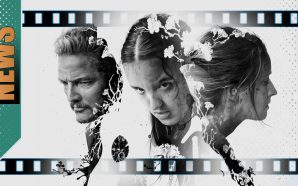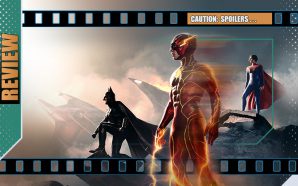In the wake of recent events, with parts of the city being flooded and the death of crime kingpin Carmine Falconi still a shadow across its streets and alleys, Gotham City’s ne’er-do-wells and would-be leaders of the underworld are jostling for power, scrambling for who will get the wealth and influence of the late Falcone. Oswald Cobb has always had an ambitious nature, knowing what to do (and not to do) to hold on to his middle-management power and survive the regular machinations of whoever is the city’s kingpin at the time…
Now, he realises, there are new opportunities and new dangers and he must find a way to reach beyond the limitations of his own body to persuade those around him that he’s the best man to hold the reins of Gotham’s crime empire. Some are aware of his plans; some are oblivious but few trust him as far as they could throw a flightless bird.
However, Oswald has plans – he will use events and people to his advantage and if they won’t help him or get out of his way… then he’ll find a way to move them… by fair means or fowl.
*spoilers*
The symbiotic relationship between film and television continues unabated with the modern trend of having television shows fill the gaps between feature films set in the same continuity or ‘universe’. But while some past efforts have felt reliant on that connection (and sometimes little more than promotional tie-ins and marketing opportunities) some of the best have worked because they stand on their own merits – as good, in their own way, as the original material.
Without doubt, HBO Max‘s The Penguin crafted by its team under showrunner Lauren LeFranc, is an example of a show that’s confident enough in itself to succeed on its own merits, sharing some foundational pillars but establishing its own real estate.
There’s every reason to think that Colin Farrell, returning to the role after appearing as Oswald in Matt Reeves’ The Batman, will be raking in nominations. Buried though he may be under authentic-looking prosthetics, he still essays a wonderfully complex, mercurial performance that is simultaneously cunning, shambolic, an emotionally and physically-crippled man whose sheer determination for power keeps his momentum going…Bluntly, it’s the kind of challenge and role that actors dream of and to which great actors rise…
The production values (including those from Lovecraft Country‘s Kalina Ivanov as Production Designer) are there for all to see, creating an askew, but believable world, viewed through a lens, very darkly indeed. The touchstones are all here… a troubled city with opportunistic and dangerous criminals fighting for power and there are – if you look carefully – some Easter eggs to homage the past: both Burgess Meredith and Danny DeVito are partially name-checked in forlorn storefront signs. The show, like its main character, is an outlier take on the classic gangster genre, not quite as overtly vivid or over-the-top as some of Gotham’s other incarnations over the years – though the city has always been a superb supporting character to the mythology). It is very much a gritty, stylistic companion piece (and an extension of the aesthetics of) Matt Reeves’ recent success The Batman and part of a modern trend for street-level angst and power plays. The pilot episode, directed by Craig Zobel, shifts the spotlight from caped crusaders to uneasy underworld machinations, with Farrell reprising the role of the Penguin glimpsed in the feature film, but the essential ‘Gotham meets The Godfather‘ mandate works well.
There’s every reason to think that Farrell is piling up the potential award nominations by the week. Buried, though he may be, under incredibly authentic-looking prosthetics, he still essays a wonderfully complex, mercurial performance that is simultaneously cunning and shambolic, an emotionally and physically-crippled man whose sheer determination for power keeps his momentum going, able to pivot to whomever can help him achieve his aims. Physically Farrell looks more like a twisted version of actor Richard Kind (most recently seen in Only Murders in the Building) and sounds like an about-to-boil Robert De Niro. Yet somehow he also makes it all his own, clearly relishing the ‘disguise’ and the freedom it grants him. Under such conditions, it would be tempting to give in to a ‘more-is-more’ performance, but apart from a few moments of vengeful spittle and scenes of intense violence, Farrell is often deliciously restrained, his eyes dancing like broken windows to a fractured soul and his body-language and gait underplaying his strength and danger. Bluntly, it’s the kind of challenge and role that actors dream of and to which great actors rise and Farrell is breath-takingly great throughout.
While Farrell will, rightly, get a lot of the kudos, there’s plenty of praise to go around. Cristin Milioti (Black Mirror, How I Met your Mother) is also getting kudos for her performance, which has a different but equally dangerous vibe. Her Sofia Falcone, a vengeful daughter framed by her family and freshly out of Arkham Asylum, has an apparent fragility that disguises her utterly ruthless mission and it does nothing to dilute her influence with a determination to make sure she’s not robbed of her birthright. She has Oswald’s number from the start, but the premiere episode sets up a battle of wits and canny strategising, so that neither quite have the power to usurp the other. That continues through the season and, frankly, you wouldn’t want to bet against either character if your throat depended on it…
Rhenzy Feliz, slowly making his name over the last decade, delivers a teen petty thief called Victor Aguuilar, whose fate is intertwined with Oswald’s when the former tries to steal the latter’s car. It seems likely Oswald will kill him as ruthlessly as he has others, but he decides to spare the teen, at least for the moment, recognising in him the desire to better himself, by fair means or foul (fowl?). That uneven relationship – indeed, all the uneven relationships – continues throughout the season with more ironic tap-dancing and sleights-of-hand from Oz as you’d expect, generating some very near-misses (and nice misdirection).
Others in the impressive and expansive supporting cast bring their A-game. Clancy Brown (currently engaging in a long-overdue and worthy screen resurgence) generates seething resentment as Salvatore Maroni with the ever-reliable Shohreh Aghdashloo as his equally dangerous wife Nadia. Deirdre O’Connell excels as Francis Cobb (Oswald’s mother, in the twilight years of her life and the reason for the eponymous character’s drive to provide) is a quiet tour-de-force; Theo Rossi is the sleazy psychotherapist Julian Rush and Mark Strong (replacing the feature film’s John Turturro) plays Carmine Falconi in flashbacks.
The series is made even more amazing when you consider it was a production impacted by the writers strike and yet manage to navigate completion by quickly moving around the filming of scenes. You couldn’t guess that some of the key dramatic scenes in say, Episode Seven (‘Top Hat’) were completed with almost no direct rehearsal time and by rushing to get the needed players to where they needed to be ahead of the industry lockdown.
Does the series’ quality last until the very end? In all the important ways, yes.
Those expecting a huge denouement in the finale may have been slightly disappointed that there wasn’t a wham-bam finish, but more of an alternating series of power-shifts as Sofia and Oswald traded superior positions with everything to play for. In the end, despite a new status-quo in which both characters can return if the story demands it, there were some great character moments to play. Sofia is back in Arkham Asylum, a fate worse than death but with a letter arriving that suggests she still has ‘family’. Oswald’s relationship with his mother is given a bittersweet ending of sorts and lest we get too comfortable with thinking of Oz as the misunderstood hero he wants to be, there’s a far colder and emotional brutal end for Victor that leaves us in little doubt that Cobb now sees familial attachments as a weakness. You certainly don’t have to be a Knight to be dark…
On that note it was said early-on that Robert Pattinson’s proto-Dark Knight would not be making an appearance (though the series sets the scene for the big-screen sequel due in late 2026 and there’s both a reference to Selina Kyle and a glimpse of a bat-signal as we end the season), but the series quickly established that it really didn’t need a caped crusader to succeed. In an era where it’s sometimes easier to come up with the concept of a plan for a good show rather than actually produce one that lives up to it, The Penguin is the latest quality must-see drama for discerning viewers, firing on all cylinders and in all departments and feeling remarkably grounded – in a Good Fellas way.
And yet, while the penguin may be a flightless bird, this is an eight-episode series – light (or dark) years away from the days of Adam West’s tenure of pantomime threats… replacing them with a gallery of street-wise grotesques and has clearly soared on the ratings front. It has an enviable, edgy soundtrack of originals and cover-versions to bookend-balance its blend of old and new visuals and – as the end-credits roll at the end of the first episode – the chances are that you’ll never listen to one of Dolly Parton’s signature tunes in quite the same way again…

- Story10
- Acting10
- Direction10
- Production Design / VFX10











